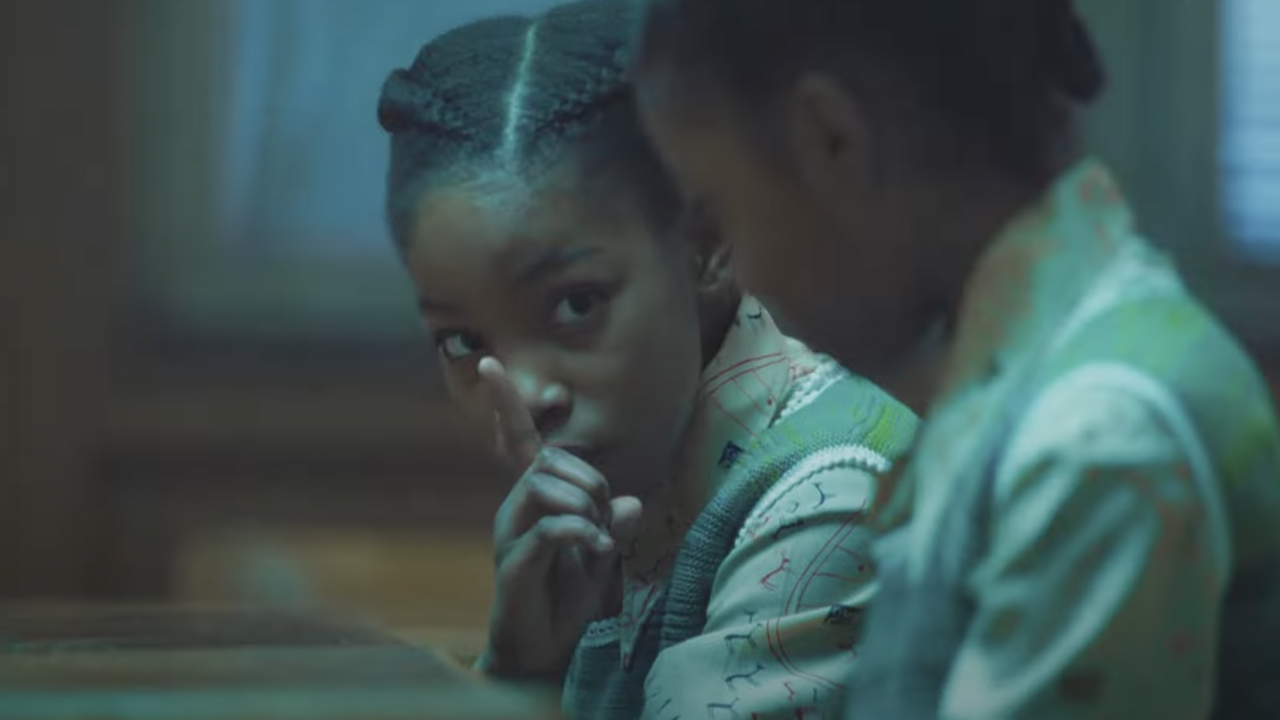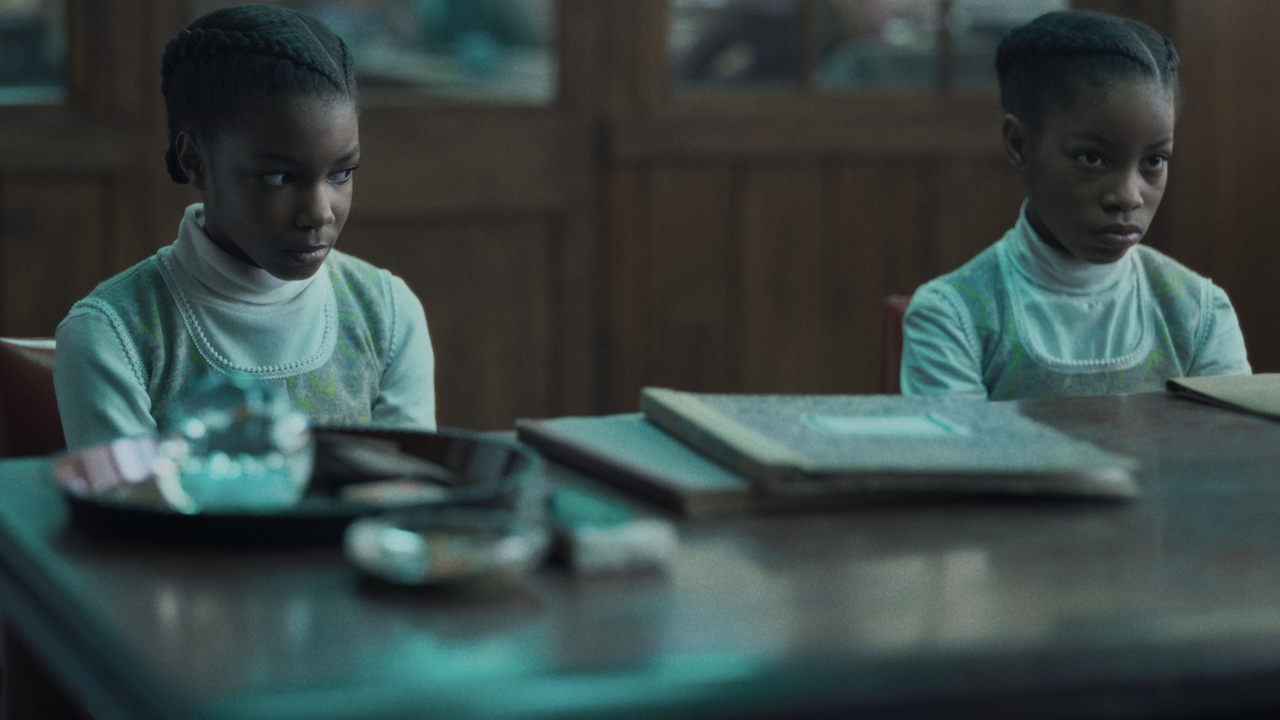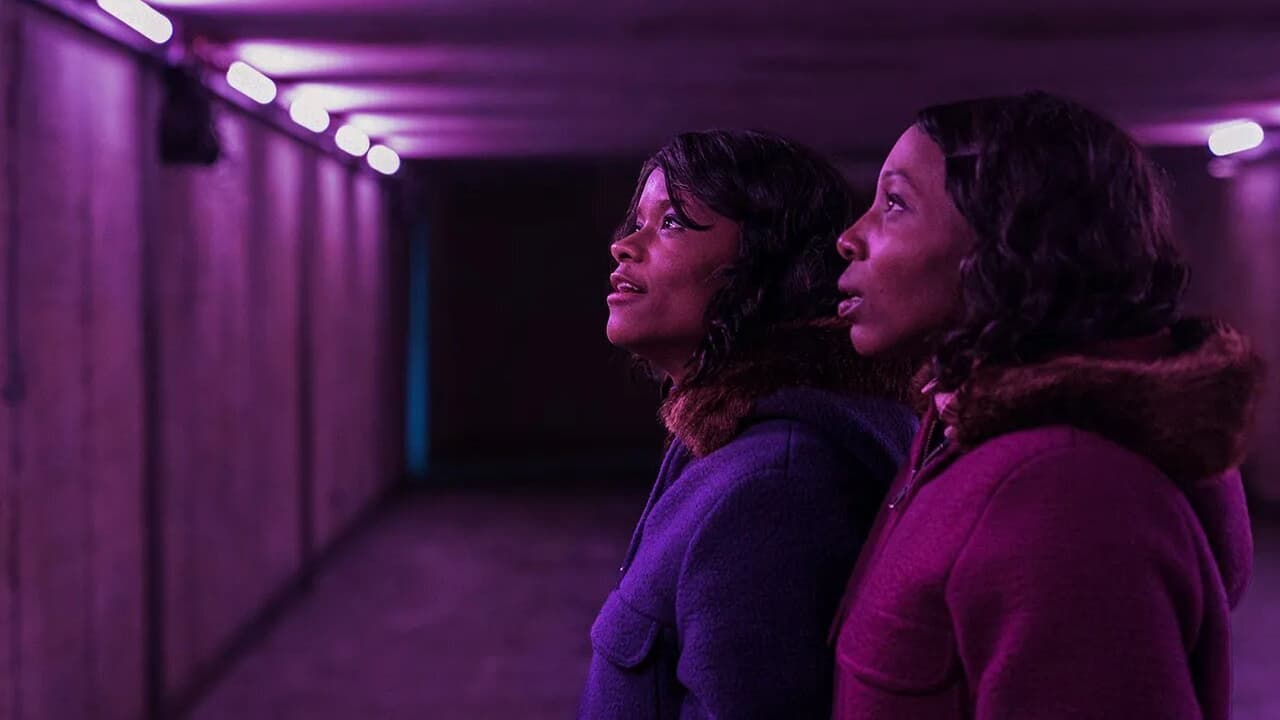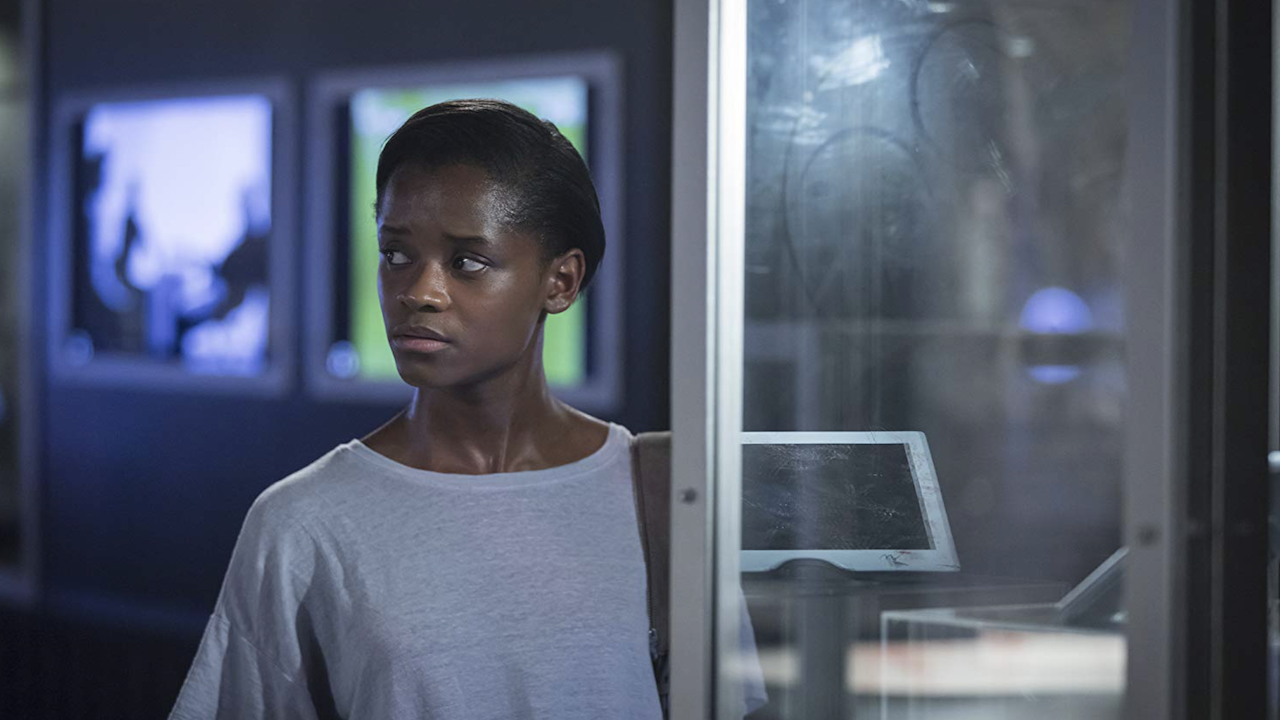The Silent Twins speaks up for misunderstood sisters June and Jennifer Gibbons

Letitia Wright and Tamara Lawrance star as the selectively mute Gibbons sisters, in an audacious and vibrant retelling of their strange lives. Rory Doherty reviews The Silent Twins, a story that deserves to be heard.
The Silent Twins
In the opening scene of The Silent Twins, which tells the true story of Carribean-Welsh twins June and Jennifer Gibbons, we’re introduced to the pair as smooth-talking radio DJs, showing their effervescent charisma and surprising emotional articulacy.
A sudden cut to the drab reality of 70s Wales reveals their observable reality; they only ever talk in each other’s company, and exclusively to one another. At all other times they remain completely silent, heads bowed, totally unreachable.
It’s their hidden interior world Polish director Agnieszka Smoczynska seeks to explore in dazzling, rich fantasy sequences and musical numbers, and even if the broad tonal approach she takes might distance the audience from the inner lives of the twins on a couple occasions, The Silent Twins hits the necessary emotional notes more than commendably, and signals a bright future for its young cast members.
Smoczynska’s breakout piece The Lure, a Polish burlesque riff on The Little Mermaid, shares a couple things with her latest; a dazzling visual style, a proclivity to break into song, and mixed critical reception. The Silent Twins, her English-language debut, has the director on much surer footing, balancing the descent into an imaginary world with increasingly tragic character work. If the mermaids and shady club owners of The Lure felt like every character was directly articulating their thoughts to the audience, Smoczynska has selected a project where that luxury isn’t available to her.

Instead, we get a sense of the Gibbons’ feelings through the stories they write, which are shown first in handheld archive footage before giving way to technicolour sets once their confidence and abilities expand. We watch as the Gibbons become outsider artists; writers whose wealth of work was not accessible or appreciated by their contemporaries, and the jagged, unsettling nature of their work is brought to us in lurid images and hand-stitched—and decisively creepy—stop-motion.
A lot of their stories, characters and games seem like a dark expression of something more tragic and painful, but screenwriter Andrea Seigel is wise not to analyse and diagnose the behavioural difficulties the twins face. What matters are the ways the girls were failed on a medical and human level, and how impossible it was for them to acclimatise to an unfeeling society.
Anchoring the film are the performances showing the twins first as young girls, played by Leah Mondesir-Simmonds and Eva-Arianna Baxter, then by Black Panther star Letitia Wright and The Long Song lead Tamara Lawrance. Each pair has terrific chemistry and a firm grip on their characters, and all the ways they gel together and spat in their tiny insular world are compelling to watch—whether they’re building model Christmas dinner sets or breaking out in bouts of violence.

But these moments are all grounded in reality, and there is a point where the abundance of fantasy sequences, dripping in melancholic Americana aesthetics or playing songs of childlike simplicity, stop giving an insight into their private world and actually distance us from how June and Jennifer are feeling.
Especially the film’s last act, set in Broadmoor after a period of antisocial spiralling, would benefit more from a brutally realistic approach with less sentiment and an attempt to unpack how the twins’ Blackness was crucial to the prejudiced way in which they were treated. Smoczynska prefers using the Gibbons’ story to evoke strong emotion in its audience rather than questioning the factors that led it to happen.

The emotional impact of such an approach will vary (and has proved divisive already), but for those tuned into The Silent Twins’ frequency, it will prove just short of devastating. The Gibbons immersed themselves in worlds they could design and therefore control, and the way they shut down at anything that challenges that is tragic to watch. The human story is elevated by impressive technical work; Marcin Macuk and Zuzanna Wronska have crafted a score that mashes up many styles, and cinematographer Jakub Kijowski provides eye-catching lensing of the mundane and fantastical.
It’s the most stunning and resonant film Smoczynska has crafted yet, thanks to a commitment to craft on every level that brings the story to vibrant life.



















